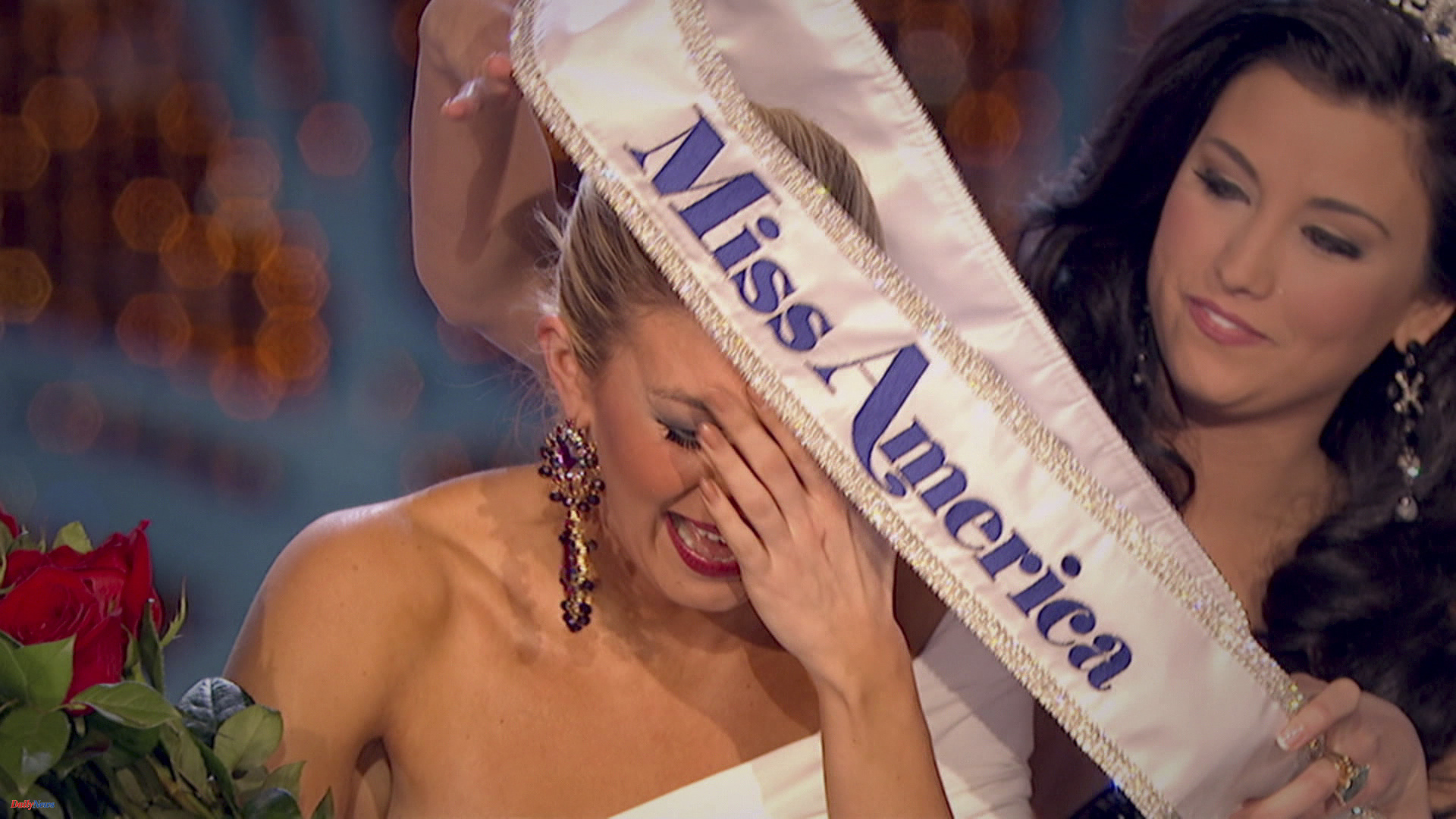Behind the images of misses parading in swimsuits in a beauty pageant there may be much more than meets the eye. Cases of racism, abuse of power, harassment, gruesome techniques to stay thin before parading in a swimsuit and eating problems. AMC Crime broadcasts Secrets of Miss America, a four-episode documentary miniseries that delves into the controversies that have plagued this popular United States beauty pageant for decades. To do this, they have interviewed 20 former Miss Americas who share their stories for the first time.
Over the course of four episodes, the miniseries tells how this contest, which was once watched by more than 80 million viewers, has gone into decline in recent decades after failing to adapt to the changes in the beauty and sexuality paradigm that has experienced by American society.
The controversies began to come to light during the mandate of Sam Haskell, CEO of the Miss America organization in the early 2000s. A person who was "accustomed to controlling those around him," says Mallory Hagan, Miss America in 2013, who remembers that having the crown on his head was a responsibility "24 hours a day, every day of the week, all year round." She was not allowed to bring men into her bedroom - not even her father - and having a partner was completely prohibited because holding her position meant being "America's sweetheart" - or, at least, making Americans think. that-. The problem came when the young woman fell in love with one of the members of the organization, with whom she began a relationship, and Haskell did everything possible to make it end, but he did not stop, not even once he succeeded. "She was not prepared for the madness and psychological warfare that was going to come," says Hagan.
After pulling strings to prevent the young woman from achieving her dream of working as a television presenter and boycotting her business as a misses trainer, he began to spread false rumors about her. "She started saying that she was a slut and that she was scum," recalls the former miss, who tells how she came to think about ending her life. "My worst moment was when I drank a lot of alcohol and went up to the roof of my building. If it hadn't been for the relationship I have with my parents, I would have made a very different decision than the one I made," she recalls through tears. .
But the controversies in the organization went far beyond having a dislike for a specific miss. In leaked emails, Haskell criticized the weight of some contest winners and made misogynistic comments about them, which seriously damaged his reputation. In one of these emails he even talked about the need to do blood tests on a winner for having slept with "25 men." Finally, he ended up resigning from his position while Miss America continued to lose relevance, with ratings that plummeted and a million-dollar debt behind her.
After this episode, with the Weinstein case in full swing, Miss America wanted to give a 180º turn to her image and reinforce female empowerment. To do this, the organization appointed as its new CEO a woman who had also been one of the standard-bearers of the Mee Too: Gretchen Elizabeth Carlson, who was Miss America in 1989, a Fox News presenter who denounced the former president of the network for harassment. sexual. Among Gretchen's intentions, who wanted to design a Miss America 2.0 by eliminating practices with sexist connotations, was to put an end to the swimsuit parade that had characterized the contest since its origins.
I went 24 hours without drinking before a swimsuit competition to dehydrate myself
And the misses who participate in the documentary denounce destructive practices to comply with the beauty standards established before parading. Young people who wrapped their legs with plastic wrap smeared with antihemorrhoidal cream to eliminate cellulite, bikinis glued to their buttocks so that they would not move when walking, and abdominal exercises or squats a few minutes before parading so that "the muscles stood out." "they say.
To this we had to add laxatives, caffeine pills, weight loss medications that were sold illegally and extreme diets based on baby food, for example. "I went 24 hours without drinking water before a swimsuit competition to dehydrate myself to the point where my muscles showed, and I wasn't the only one doing it," says Hagan. These practices even led to cases of anorexia, as Kirsten Haglund, Miss America in 2008, recalls how she entered a "horrible and dark cycle of self-harm." "We saw how some girls who were previously happy turned into zombies," she says.
Gretchen's goal, who permanently eliminated this event from the Miss America competition in 2019, was to demonstrate that misses had much more to offer than just their bodies. However, many former contestants did not agree with her decision since they considered that the swimwear parade, in addition to being part of the DNA of the contest, made them feel "empowered" on stage, which led the CEO to resign from his position shortly after imposing the measure.
Along with sexism, another of the scandals that has surrounded Miss America has been the cases of racism. There are several misses who claim that they have encountered problems throughout their journey in beauty pageants just because of the color of their skin and that they have had to change some of their physical features, such as the shape of their hair or the color of their eyes, because they made them feel that they had more options to succeed.
For more than 30 years, due to a rule imposed in 1948, the beauty contest was limited to white women and, although this rule was progressively eliminated in the 1950s, it still drags its tentacles, although indirectly, to the present day. We had to wait until 1984 to see a black woman win Miss America, Vanessa Williams, and her victory was full of controversy. Although some young black women saw it as a triumph, there are those who criticize that they chose her because her features, with green eyes, light skin and straight hair, made Americans feel "comfortable", but were far from the characteristic features of women. African Americans.
This is stated by Ericka Dunlap, Miss America in 2004, while showing one of her favorite photographs from her year as Miss. To be chosen as Miss America, she says she had to wear gray contact lenses and hair extensions: "I tried to adapt to the beauty standards of long, straight hair, lighter eyes, a thinner nose, and wearing a size 32 so they would accept me." "I did everything I could do without surgery." An opinion with which Nita Whitaker, Miss Louisiana in 1984, agrees, as she believes that she "would never have accepted" a woman who wore dreadlocks or braids. "We need the pageant to reflect what the United States is like, because we are a country of immigrants, and Miss America has to reflect the modern version of who we are, not the one that our ancestors, the slave owners, created," she concludes.












